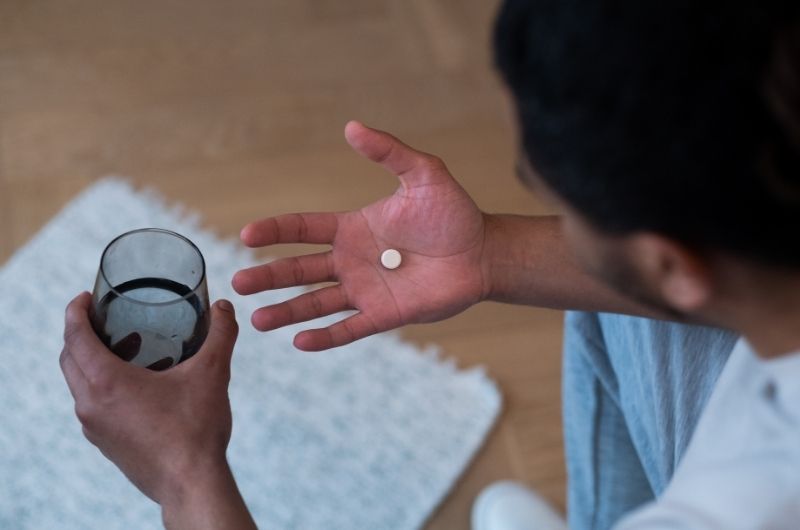Bactrim can last in your body for approximately 10 to 11 hours. You can aid this process of getting rid of Bactrim by making sure you drink a lot of fluids. The dosages and duration of your Bactrim intake may depend on the specific infection that you’re facing, weight and age. While most of the dos consist of being honest and revealing every factor of your health to the doctor, the don’ts may include staying away from habits like drinking alcohol. Like any medication, Bactrim also consists of typical side effects like mild headaches and nausea. However, any progression of side-effects to migraines and relentless vomiting would require medical assistance.
Bactrim is a medical blend of two antibiotics, namely sulfamethoxazole and trimethoprim.
Doctors often prescribe it when treating a vast range of bacterial infections in patients, from infections in the middle ear right up to urinary tract infections.
Bactrim jumps into action by preventing the growth of bacteria.
An estimated number of 6 million Bactrim prescriptions have been made in the United States in the year 2019, according to statistics.
How long does Bactrim stay in your system? Can you flush Bactrim out of your system faster? Are there different dosages recommended for different infections in your body? What are the dos and don’ts of taking Bactrim? What side effects do you need to look out for when taking Bactrim regularly?
How long does Bactrim stay in your body?
A single dosage of Bactrim may last about 10 hours in your body before its effects begin to fade away.
But if you’re already suffering from kidney complications, Bactrim may last a little longer.
So, the ideal time gap to take your Bactrim dose would be around 12 hours to ensure that this strong medicine doesn’t cause an unhealthy buildup of Bactrim.
It’s strictly advised to consult your doctor before taking Bactrim since the doctor considers various personal conditions before prescribing this medicine.
Depending on already existing health conditions, you may be advised to take Bactrim either more or less frequently.
How can you flush Bactrim out of your system?

The best way to flush out Bactrim is by drinking a lot of fluids to dilute the strength of Bactrim.
In fact, it’s often advised to take the pill along with a full glass of water and drink lots of water daily.
You can also minimize some harsh risks of Bactrim by drinking water.
For example, in a 2018 study, it was proven that drugs such as Bactrim can increase the chances of developing kidney stones in children. So, that additional glass of water won’t hurt you.
The antibiotic Trimethoprim contained in Bactrim is also known to be primarily excreted in the form of urine, according to a 2021 study, which makes it all the more important to up your intake of fluids to quickly flush out Bactrim from your body.
What are the dosages of Bactrim for different bacterial infections?
As we already know, bacterial infections can get triggered in many ways in your body and has a wide range of varieties.
Therefore, the dosage of Bactrim needed for your condition could depend on the type of bacterial infection, as clearly listed below.
1. Urinary tract infections and middle ear infections
The adult dose consists of 800mg/160mg, to be taken once in 12 hours for around 1 or 2 weeks.
Your doctor may notify you of the exact time since it depends on the stage of your infection.
When it comes to children, the dosage is given based on their weight.
2. Traveler’s diarrhea
An adult’s typical dose would contain 800mg/160mg once every 12 hours for about a week.
3. Pneumonia in compromised immune systems
In this instance, the dosage can be unpredictable since it’s based on the weight of both adult and child patients and may be taken once every 6 hours for around 2 to 3 weeks.
4. Chronic Bronchitis
The average dose for adults is 800mg/160mg and may be taken once in 12 hours for 2 weeks.
What are the dos and don’ts of taking Bactrim?
As presented in the table below, there are many precautions to be aware of before starting your Bactrim medication regarding what you should do and should stay away from.
| The dos of Bactrim intake | The don’ts of Bactrim intake |
|---|---|
| Always make sure you notify your doctor, dentists, and pharmacists that you’re taking doses of Bactrim. | Do not use Bactrim for other purposes apart from your diagnosis. |
| Be honest with your doctors whenever you don’t end up following the doctor’s orders on Bactrim medication. | Don’t stop taking Bactrim abruptly or change the dosage without consulting the doctor. |
| Keep the doctor updated on whether Bactrim is improving your condition or not. | Don’t provide your Bactrim pills to anyone even though they may have similar symptoms. They will need to consult with a doctor separately. |
| Make sure you drink lots of fluids like fresh juices, water, and tea. | Don’t drink any beverage that can result in dehydration, like coffee and alcohol. |
| If you’re a long-term Bactrim taker, make sure to regularly schedule an appointment with your doctor to record your progress. | Do not take any new medication without notifying your doctor since your Bactrim can affect other medications. |
| Notify the doctor that you’re taking Bactrim if you get pregnant or need to take any blood tests. | Don’t ignore even the simplest side-effect you’re experiencing. Always keep your doctor updated as changes in dosage might be needed. |
| Seek immediate medical attention if you develop a severe case of diarrhea | Don’t let yourself run out of medicine. |
Side-effects to watch out for when taking Bactrim

Side effects are common to almost any medication, including Bactrim.
Along with your regular dose of Bactrim, you may experience nausea with or without vomiting.
Diarrhea and stomach pains to a certain extent can also be considered typical side effects of Bactrim.
However, certain side effects are a little more severe and require consultation with doctors if it occurs.
- Oral and vaginal thrush – You might experience a fuzzy, sore tongue and mouth. This can even occur in women’s vaginas, leading to itchiness.
- Jaundice – This refers to the yellowing of the skin and is a serious symptom that hints at liver failure. A 2008 study revealed a 22-year-old female who experienced jaundice followed by acute liver failure within just a week of taking Bactrim.
- Severe diarrhea – While diarrhea is a typical side effect, if it persists over a week or worsens, you’ll need to notify your doctor.
- Skin complications – This may include unusual rashes, itching, peeling off of skin in a particular area of your body, or hives.
- Fever – If you’re experiencing fever throughout your Bactrim intake or even after ending it, you should visit your doctor as it could be a result of a hypersensitive reaction in your body. A 2017 case report showed a 33-year-old female who after being treated with a 21-day course of Bactrim developed fever and macular rash as a delayed side-effect of Bactrim.
- Persistent headache – If your light headache turns into a painful migraine, you’ll definitely need to either lower your dose according to the doctor’s instructions.
- Cough and shortness of breath – Any difficulty in breathing needs to be taken seriously when it comes to medication side effects.
FAQs
How long will it take your infection to feel better after taking Bactrim?
When it comes to less severe infections such as an ear or urinary tract infection, you can expect physical relief in about a few days.
But, if you’re dealing with more complex infection types like pneumonia, it may take about 2 to 3 weeks to feel any kind of comfort.
Is Bactrim too strong of an antibiotic?
Bactrim is quite powerful since it composes of a combination of both sulfamethoxazole and trimethoprim antibiotics.
This is why you shouldn’t take this medication without a prescription.
It can also be too powerful for people suffering from kidney and liver complications.
The elderly may also be prone to higher risks.
Can Bactrim be fatal?
In rare instances only, Bactrim can cause serious allergic reactions such as blood disorders, severe skin rashes, and liver or lung damage.
Doctors are quite cautious in prescribing the correct dosage that suits your body. You needn’t be too afraid as long as you communicate all your existing medical conditions to the doctor beforehand.
Conclusion
Bactrim is known as a generally safe medication as long as a medical practitioner supervises you.
It’s always healthy to voice any concerns you have to your doctor whenever you pay a visit since they can clear all your doubts about taking Bactrim.
You can even consult with your doctor about different alternatives for Bactrim in case of allergic reactions, such as Macrobid, Cipro, Amoxil, and Doxycycline.
Either way, your doctor will help you guide yourself to safely get rid of your infection.


